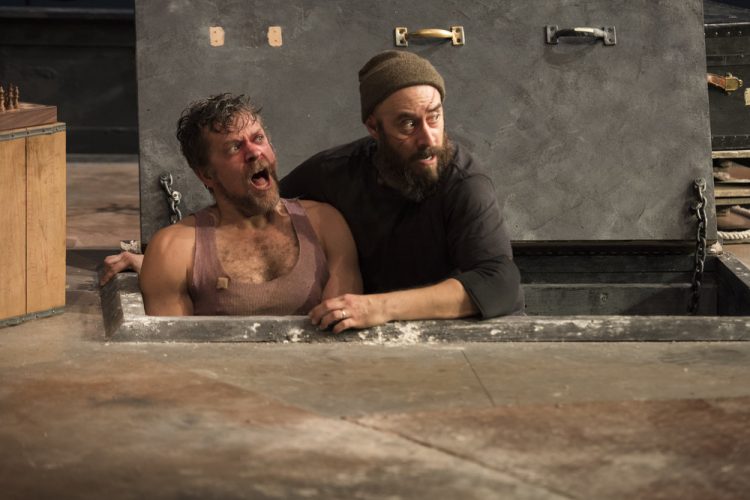Micronations hold a perennial fascination for students of the human condition. On the one hand, they seem to offer a ready model of the commonwealth on an individual scale, a Leviathan shrunk down to human dimensions. On the other, they represent the possibility of radical self-determination. And what could be more attractive in a world increasingly determined by globalism and social media?
Barbara Hammond’s new play makes deep incursions into this exotic territory. Her research led to an anti-aircraft platform in the North Sea known to its handful of citizens as Sealand. The result is Terra Firma, an absurdist allegory playing at the Baruch Performing Arts Center through November 10.
To judge by the incredibly detailed and realistic set by Andrew Boyce, absurdism is the last thing you would expect after entering the Rose Nagelberg Theatre. However, the comical opening dialog between Roy (Gerardo Rodriguez), a newly taken Hostage (Tom O’Keefe) and Terra Firma’s sole citizen (John Keating) soon makes it clear that however politically independent Terra Firma may be, geographically it’s deep in Beckett country.
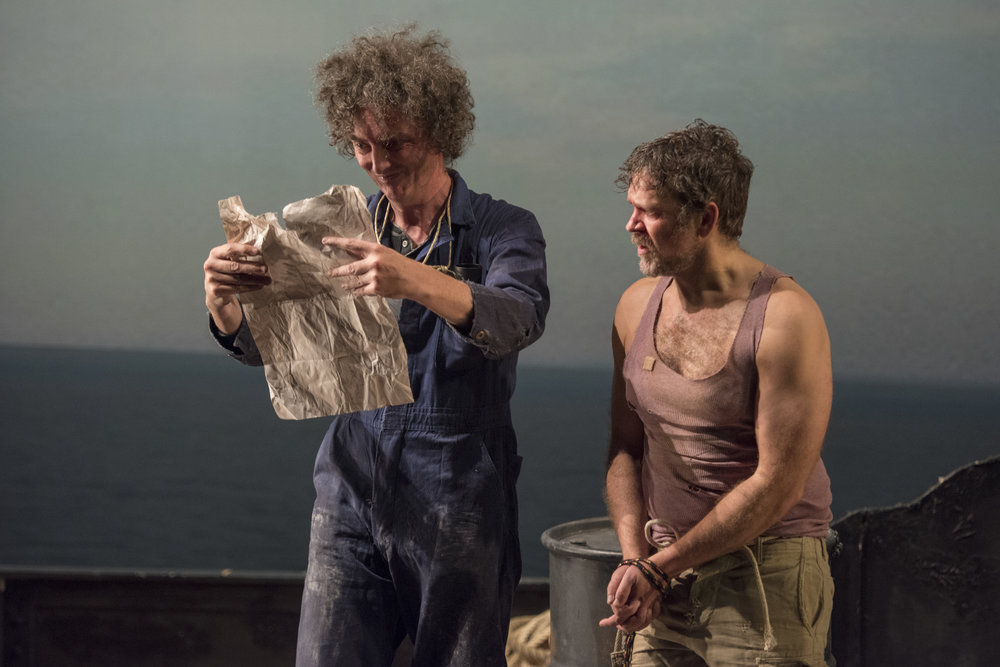
Deeper than Beckett himself, in a sense. For the Irishman’s preferred method was to place absurd characters in banal situations (Waiting for Godot) or banal characters in absurd ones (Happy Days). By setting a self-proclaimed monarch on a platform at the end of the world (temporally speaking) Hammond opts for twice the absurdity. This is both the play’s strength and its weakness. Strength, because it affords twice as much material for comedy. Weakness, because it lessens our ability to identify with either the characters or their plight, and accordingly to gain any meaningful insight into human nature or the man-made disasters to which the play alludes.
Against this objection could be argued the realism of Boyce’s impressive set, the eventual appearance of the royal pair’s son (Daniel Molina) as the proverbial “still center” of the play, and the psychologically truthful portrait of Her Majesty by the highly talented Andrus Nichols. The queen’s preoccupation with writing a preamble as the bombs draw near is completely believable. After all, Nero fiddled while Rome burned and the band played on as the Titanic sank.
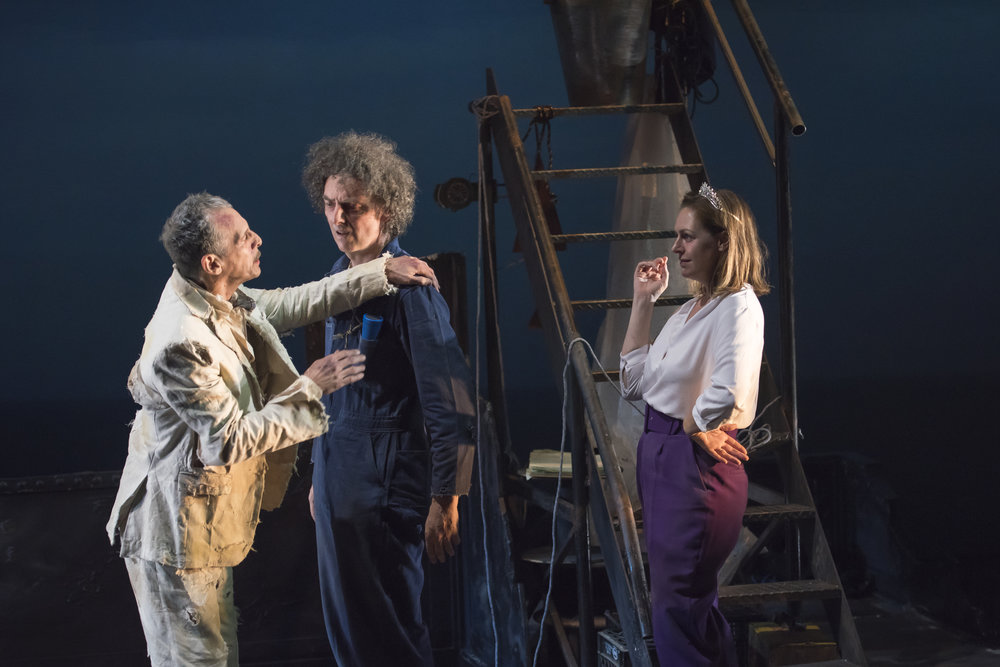
Politics aside, Terra Firma is a highly entertaining play. The highlight in this regard is T. Ryder Smith, who arrives late to the party and plays the part of the Diplomat with the verve and gusto of a Neapolitan maestro. His command of voice and gesture is so complete that even the simple act of tripping on a piece of sheet metal gets funnier each time he does it. And his fistfight with O’Keefe’s ornery and ethnically ambiguous Hostage is a masterpiece of slapstick (choreographed by fight director Carman Lacivita). The show also boasts impressive and imaginative lighting and sound effects by Eric Southern and Jane Shaw. The ending in particular leaves the audience with a strong aftertaste of impending disaster.
The disaster allusions are many, from global warming to global thermonuclear war, with stops at the DMZ and the U.S./Mexico border. Hammond even lists them in the program. But what specifically does she want to say about them?
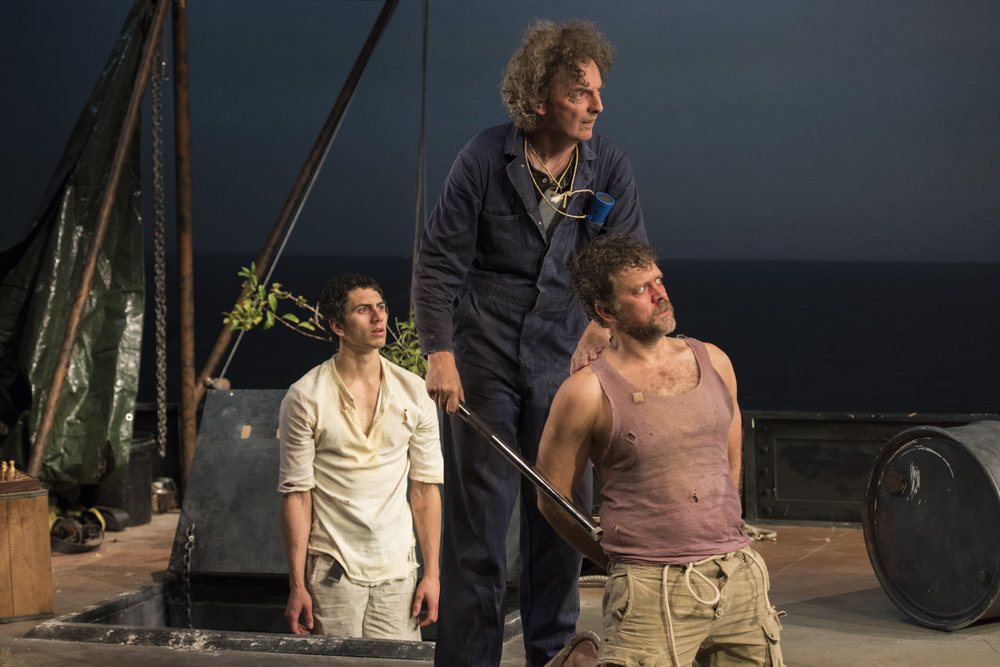
For his part Beckett resisted any attempt to interpret his plays as political allegories, perhaps because he wanted to preserve their universality. Or perhaps his reasons ran deeper. In the final analysis, the point of absurdism is that there is no point. Its message is philosophical: the absurdity of existence, not of this or that person’s behavior or this or that set of circumstances. Political messages, by contrast, are positive and normative in nature. If so, isn’t absurdism the genre least suited for political statements?
And what, after all, do micronations have to say about their larger cousins? A constitution for a country of four may be absurd, but what is absurd about the U.S. constitution? The truly fascinating thing about a micronation, to my mind, is the personality of its founder. Whether that personality reveals much about the nature of someone capable of founding a larger, more viable nation, is doubtful. In other words, the kind of person who founds a micronation is fundamentally different from the kind who builds an empire.
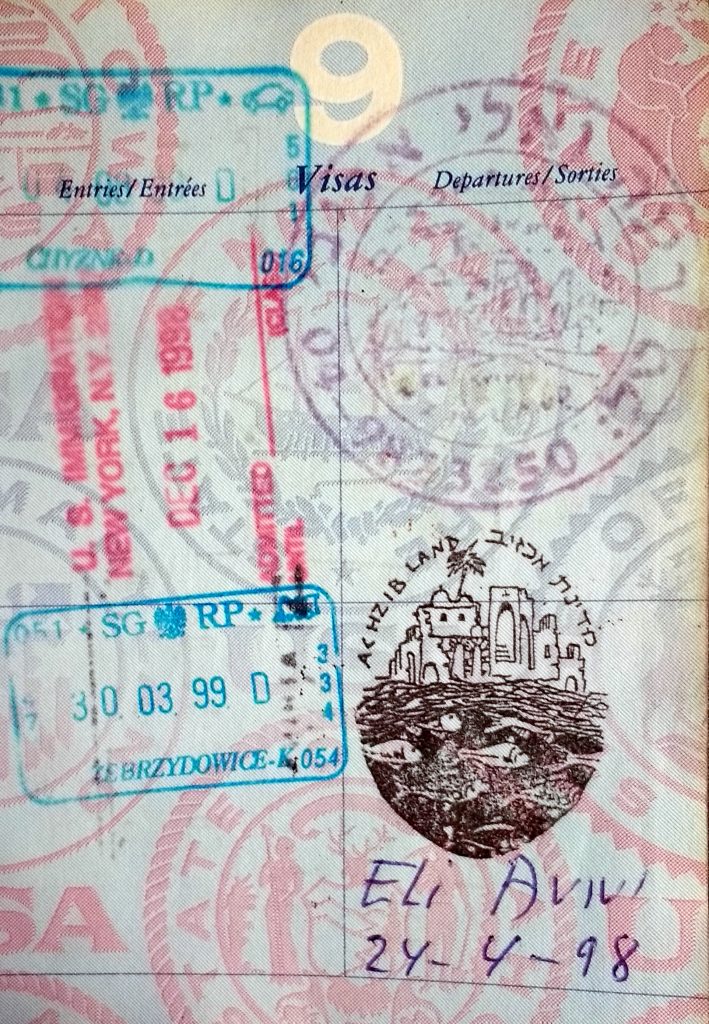
Backpacking through Israel some twenty years ago I heard rumors of Achzivland and its leader, President-for-life Eli Avivi. The next day found me on a bus to a stretch of beach just south of Lebanon, where the white-robed potentate stamped my passport and offered room and board in exchange for help building a museum to house flotsam and jetsam he had collected since declaring the land a sovereign nation in 1971. He passed away last year, but his chutzpah and stubborn refusal to submit and conform inspire me to this day.
Like the founders of Sealand, Eli was more of a hermit than a nation-builder. And like Terra Firma, Achzivland has little to teach us about politics. Above all, micronations serve to remind us of both the boundlessness of the human imagination and the vanity of all human endeavor. Terra Firma serves up those reminders in an entertaining package tour that is well worth the ticket price.
Terra Firma is playing at the Baruch Performing Arts Center, Rose Nagelberg Theatre through November 10. For tickets and information visit: thecoopnyc.org

